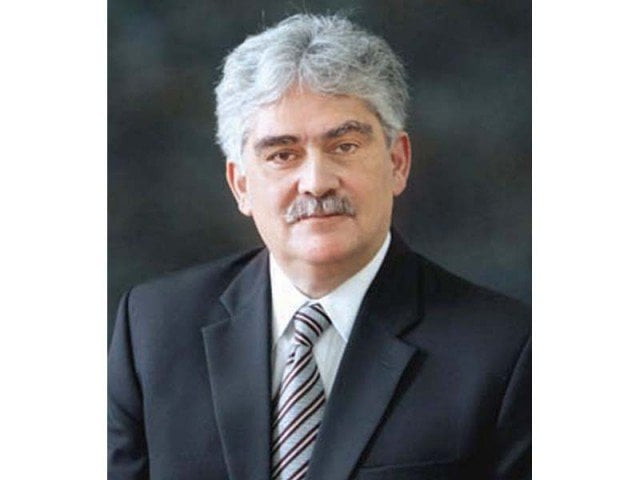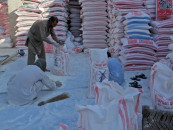Ideas must flow: Without innovation, development models won’t work: Haque
Says learning and health opportunities for young will help country prosper

Former deputy chairman Planning Commission Dr Nadeemul Haque
Speaking at a public lecture on agriculture and economic growth at the University of Agriculture Faisalabad (UAF) on Tuesday, Haque said every country was facing its own problems and researchers, policymakers and stakeholders should devise a development strategy keeping these issues in view.
“The adoption of uplift models of other nations will not work until we work on local needs and circumstances,” he remarked.

“It is not time to reinvent the wheel and we have to adopt global knowledge to fight local problems,” he suggested, saying the development came from changes in the mindset of people as they became innovative and worked hard to change their lives.
He pointed out that 90 million people in Pakistan were under the age of 20 years and if they were provided good learning and health opportunities, the country would march towards development and prosperity.
Brushing aside the impression that majority of Pakistanis were living in rural areas, he said 70% of people were in urban centres, but several areas were not functioning like a city.
“Urbanisation does not mean developing big residential colonies but it should make people well aware which is lacking in Pakistan,” he said.
Pointing to oft-repeated general statement that the agriculture sector, which had about 21% share in national output, was employing 40% of the workforce, he said various surveys showed that half or more could be non-farm employment, which, if found correct, meant that employment in agriculture production was about 20% of the labour force.
Haque said small farms were diminishing as people were selling them in order to migrate to cities or settle abroad.
He called for adopting brands for the agricultural produce and introducing vibrant policies that could help the sector flourish. He reminded universities that they were meant to give out-of-box solutions to the problems of people and asked students to develop entrepreneurial skills.
UAF Vice Chancellor Professor Dr Iqrar Ahmad Khan said agriculture and rural development were interlinked as agricultural progress would help reduce poverty in the country.
He pointed out that agricultural land was being converted into residential colonies and keeping that in view an increase in per acre production was necessary to ensure food security.
He told researchers that it was their duty to come up with new ideas in an effort to tackle new challenges.
US-Pakistan Centre for Advanced Studies Chief of Party Dr Bashir Ahmad said post-harvest losses, traditional way of farming, inefficient use of resources, lack of mechanisation and other challenges were aggravating the problem of food insecurity in the country.
Published in The Express Tribune, April 27th, 2016.
Like Business on Facebook, follow @TribuneBiz on Twitter to stay informed and join in the conversation.

1733949940-0/image-(8)1733949940-0-208x130.webp)

















COMMENTS
Comments are moderated and generally will be posted if they are on-topic and not abusive.
For more information, please see our Comments FAQ